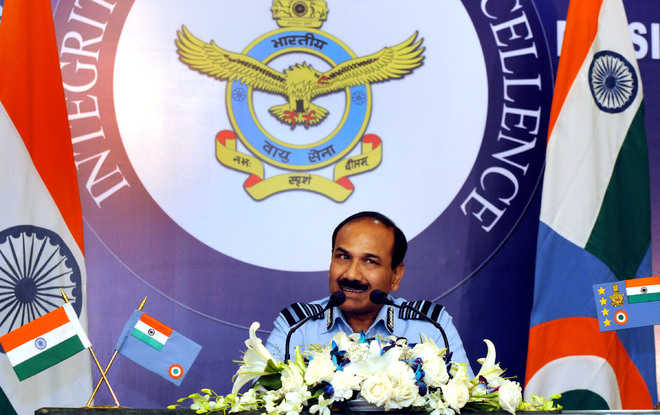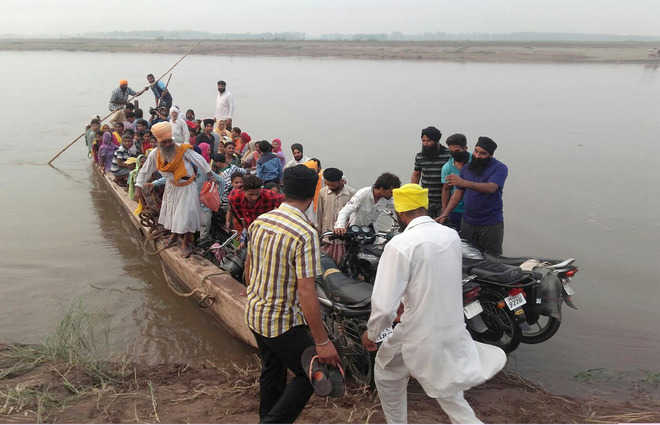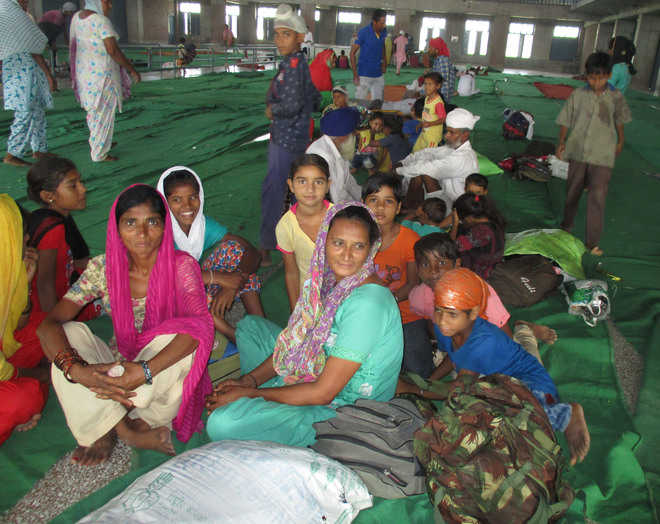
Indian Air Force Chief Marshal Arup Raha addresses the annual press conference in New Delhi on Tuesday. Tribune Photo: Mukesh Aggarwal
Tribune News Service
New Delhi, October 4
IAF Chief Marshal Arup Raha today refrained to comment on the recent strikes at terror camps across the Line of Control (LoC), saying things were still “live” and the IAF had adequate capability to take on any contingency.“Things are still live, it would not be right for me to give a perspective now,” Air Chief Marshal Raha said at a press conference. He refused to take any question on the September 29 surgical strikes. “Our capability is not towards a particular country,” he said without naming Pakistan.Speaking about future plans, he expected the IAF’s fighter jet fleet to grow over the next few years and provide better capabilities. Over the next few years “we will manage the fleet with replacements and upgrade”.After the purchase of 36 Rafale jets from France, there is a plan to make fighter jets in India. The Light Combat Aircraft, Tejas, will be inducted in big numbers (106, including the upgraded version).Also there are plans to upgrade the Sukhoi-30 MKI — the IAF’s lead fighter jet that is based at Halwara and Bathinda in Punjab and Sirsa in Haryana, among other bases in the country.The IAF at present has 33 (16-18 in each) fighter squadrons as against the 42 needed to tackle a simultaneous two front war with Pakistan and China.On the LCA, he said the next version called the Tejas ‘Mark1-A’ will be an improved version. It will have better radar, greater weapons carriage avionics. We can start production by 2021. “We can have 80 such planes by 2027.”On having the fifth generation fighter aircraft (FGFA), he said there were some issues of transfer of technology with Russia. He said: “We can hopefully move ahead on the research and development of the same.”On the integration of BrahMos missiles with the Sukhoi-30 MKI, he said “we hope to fire a live missile in three months time.” The IAF chief who heads the Chiefs of Staff Committee (CoSC) — a body of the three service chiefs — said he hoped the government would resolve the issues of the 7th Pay Commission.







































































